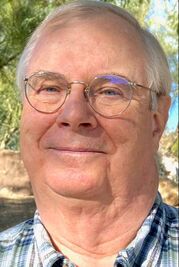 Peter Gow Peter Gow More than 25 years ago I had a strange experience. It started on a professional day. Well, say you, what’s interesting about that? We’ve all had those experiences, generally out-of-body moments as we imagine ourselves anywhere but in a dining hall crowded with our colleagues being not very entertained by a strategically overdressed person with an easel. The setting of my experience was just this. There we were, not knowing quite what to expect, with the added mystery of a box of colored markers and a sheet of poster paper on our table. Easel guy was introduced, and then the strange thing happened—and its effects inspire me to this day. Our facilitator was David Grant, then a colleague of the late Grant Wiggins. Wiggins had introduced the independent school world to the counterintuitive but paradigm-changing idea of “backwards” curriculum and assessment design. “Understanding By Design” was not quite yet a book, but our head of school and a few explorers had found it a compelling concept. (David Grant was already a personage on his own as one of the founders of The Mountain School, and his fame lives on in his 2015 work, The Social Profit Handbook, an essential text for anyone managing a mission-driven nonprofit and looking for ways to better set organizational goals and assess progress toward them.) The morning began with a review of the school’s mission statement, which was a model of its time, circa 1993: unexceptional and unexceptionable, although as I recall (having been a small part of the drafting process) the “lifelong learner” advocates hadn’t managed to insert their pet phrase. The next thing we knew, we had a sheet of simple instructions in front of us and instructions: draw a picture of the graduate of our school (coed, day, grades 6–12) as we might idealize this person. Give as much indication as we could of what this graduate believed in, aspired to, cared about, found interesting, found meaningful.... The exercise was titled, “Picture the Graduate.” A few of us approached the exercise as if we were creating a yearbook page for this gender-neutralized, de-racialized eighteen-year-old. How could we possibly represent the manifold diversities of our community in one imaginary kid? David’s suggestion: What did that mission statement offer by way of guidance? What about the school’s other professed values and beliefs? Did our history offer any help? By the time of our lunchtime gallery walk, the walls were festooned with a dozen or more portraits, representing degrees of artistic talent and depth of analysis. Many of the pictures were illuminated with text—favorite quotes, “greatest accomplishments,” “things I care about,” and more. But they had us talking over whatever lunch might have been. Really talking. Well, the markers were collected, and we reconvened. What implications, David asked us, did these idealized (or whatever they were) figures and their lives as we hoped they might turn out have for the work we were doing in our classrooms? What would a truly mission-and values-aligned curriculum look like at our school, if we were to work backwards from these pictures and the texts and beliefs that had informed them to reassess, realign, and rebuild our school’s academic program so that we would actually be practicing in our work what our institution preached? That school, from which I am now thrice retired, has been working on that very proposition since that day. The curriculum review we had only just begun that day became in time the keystone of the school’s professional culture and inspired my own ongoing passion for this work. As an educator who has occasionally found my opinion being sought (and who has not been shy about offering it, anyhow), I have continued to evangelize for the idea that independent schools—the world with which I am familiar—, as mission-driven organizations, must build every aspect of their programs, practices, and policies around the beliefs they present to the world in their statements of mission and values. Recently in these pages my colleague Sarah Hanawald mentioned the Pictures of the Graduates (perhaps more commonly called Portraits of the Graduate) that schools often create to drive identity and messaging initiatives. These have their value, but I believe that the old-school “Picture the Graduate” exercise of the kind we did all those years ago, followed by a focused, intentional, and open-ended program of curriculum analysis is the key not only to improving the learning experience of our students but also to building the voice and perspective of teachers into the essential work of planning and executing the school’s programs. And of course the exercise and a subsequent and ongoing review can also help a school to discover itself, to see how mission and values—made manifest in academic and other programs—could inform its identity in ways that might truly differentiate the school and the experiences of its students in ways that “pay off” in instrumental and material ways for the institution, for those it serves, and even for its faculty and staff. Markers and poster sheets are relatively inexpensive. We’re happy to talk to anyone about how to make a “Picture the Graduate” exercise the first step in a process of program evolution and improvement for your mission-and-values-driven school. It really works.
0 Comments
Leave a Reply. |
Don't miss our weekly blog posts by joining our newsletter mailing list below:AuthorsBrad Rathgeber (he/him/his) Archives
July 2024
Categories |

 RSS Feed
RSS Feed